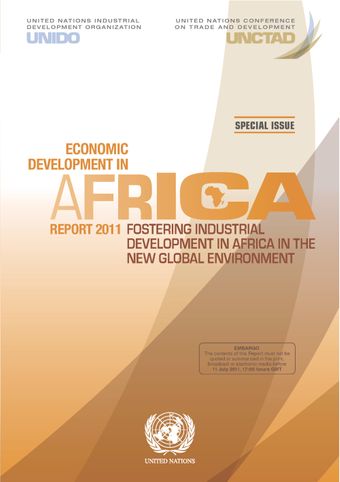Introduction

- 作者: United Nations Conference on Trade and Development
- Main Title: Economic Development in Africa Report 2011 , pp 1-8
- 出版日期: 八月 2011
- DOI: https://doi.org/10.18356/a721463e-en
- Language: 英语 法语
After gaining political independence, which occurred mainly in the 1960s, most African countries started to promote industrialization. The emphasis on industrialization was based on the political conviction by African leaders that it was necessary to ensure self-reliance and reduce dependence on advanced countries. Furthermore, there was the expectation that industrialization would hasten the transformation of African countries from agricultural to modern economies, create employment opportunities, raise incomes as well as living standards, and reduce vulnerability to terms of trade shocks resulting from dependence on primary commodity exports. But during the 1970s, with successive oil shocks and an emerging debt problem, it started to become clear that import substitution industrialization was not sustainable. With the introduction of structural adjustment programmes in the 1980s, African countries curtailed specific policy efforts to promote industrialization and focused on removing anti-export biases and furthering specialization according to comparative advantage. It was expected that competitive pressures would revitalize economic activity by leading to the survival of the fittest. But whilst these policies were certainly intended to have structural effects, the conventional view is that they did not boost industrialization in the region (Soludo, Ogbu and Chang 2004).
-
From This Site
/content/books/9789210549516c005dcterms_title,dcterms_subject,pub_keyword-contentType:Journal -contentType:Contributor -contentType:Concept -contentType:Institution105



